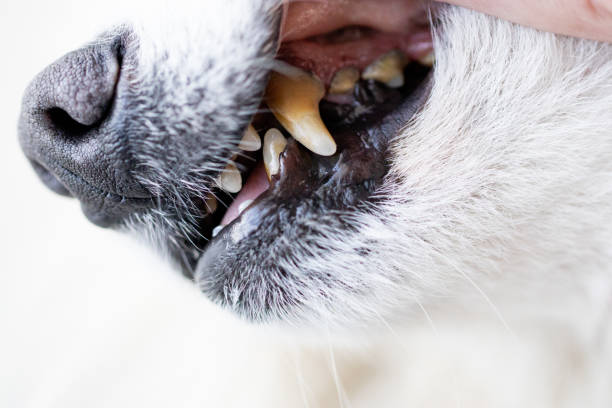What Causes Bad Breath in Dogs and How to Keep It Fresh
Keeping your dog’s breath fresh isn’t just about improving their smell; it’s also an essential part of their overall health. Bad breath in dogs, often a sign of poor pet hygiene, can lead to more serious health issues if left unaddressed. In this article, we’ll explore what causes bad breath in dogs, how to keep their breath fresh, and the impacts of ignoring your dog’s hygiene, using SEO keywords like pet care, pet care tips, and dog hygiene.
Causes of Bad Breath in Dogs:
- Poor Oral Hygiene: The most common cause of bad breath in dogs is inadequate oral hygiene. Plaque and tartar buildup can harbor bacteria, leading to bad breath and even more severe dental issues like gingivitis and periodontal disease.
- Diet and Eating Habits: Dogs often have a habit of eating things they shouldn’t, such as trash, feces, or spoiled food. These dietary indiscretions can contribute significantly to foul-smelling breath.
- Underlying Health Issues: Persistent bad breath could be a sign of underlying health problems, such as kidney disease, diabetes, or gastrointestinal issues. It’s crucial to consult with a veterinarian if your dog’s breath has a persistent, unusual odor that doesn’t improve with basic pet care tips.
- Infections and Oral Tumors: Bacterial infections in the mouth, such as abscesses, or oral tumors can also lead to bad breath. These conditions require immediate veterinary attention.
How to Keep Your Dog’s Breath Fresh:
- Regular Brushing: One of the most effective ways to maintain your dog’s oral hygiene is by regularly brushing their teeth. Use dog-specific toothpaste and a toothbrush designed for pets. Regular brushing helps remove plaque and prevents tartar buildup, keeping your dog’s breath fresh.
- Dental Chews and Treats: Providing dental chews and treats specifically designed to improve oral health can help reduce plaque and freshen breath. These chews work by scraping off plaque as your dog chews on them, providing a simple and enjoyable way to maintain their oral hygiene.
- Healthy Diet: Feeding your dog a balanced diet can contribute to better oral health. High-quality dog food with the right nutrients supports overall health, including oral hygiene. Avoid feeding your dog human foods that can stick to their teeth and contribute to bad breath.
- Regular Vet Check-ups: Routine veterinary visits are essential for catching any underlying health issues that could be causing bad breath. Vets can perform professional cleanings and provide pet care tips tailored to your dog’s specific needs.
- Water Additives: There are many products available, such as water additives, that can help freshen your dog’s breath. These additives are simple to use—just add them to your dog’s water bowl. They work by reducing the bacteria in your dog’s mouth, which is often the primary cause of bad breath.
Impacts of Ignoring Your Dog’s Hygiene
- Dental Disease: Ignoring your dog’s oral hygiene can lead to severe dental diseases, such as gingivitis and periodontal disease. These conditions can cause pain, tooth loss, and other health complications, including infections that can spread to other parts of the body.
- Increased Risk of Systemic Health Issues: Poor oral hygiene isn’t just a dental problem; it can lead to systemic health issues. Bacteria from the mouth can enter the bloodstream, potentially affecting the heart, liver, and kidneys. This can result in more severe conditions that are costly and difficult to treat.
- Reduced Quality of Life: Bad breath can affect your dog’s quality of life by making interactions less pleasant. Beyond the social aspect, the discomfort and pain associated with dental problems can impact your dog’s ability to eat and enjoy their food, leading to weight loss and nutritional deficiencies.
- High Veterinary Costs: Neglecting your dog’s oral hygiene can result in high veterinary costs down the line. Regular pet care, including maintaining your dog’s oral health, can save you from costly procedures and treatments for advanced dental issues or other health problems linked to poor hygiene.
Maintaining good pet hygiene is essential for keeping your dog’s breath fresh and ensuring their overall health. By understanding the causes of bad breath and implementing these pet care tips, you can prevent more serious health issues and provide your dog with a happier, healthier life. Regular brushing, healthy diets, dental chews, and routine vet visits are simple yet effective ways to keep your dog’s oral hygiene in check. Don’t underestimate the importance of your dog’s breath—it’s a clear indicator of their overall well-being.
